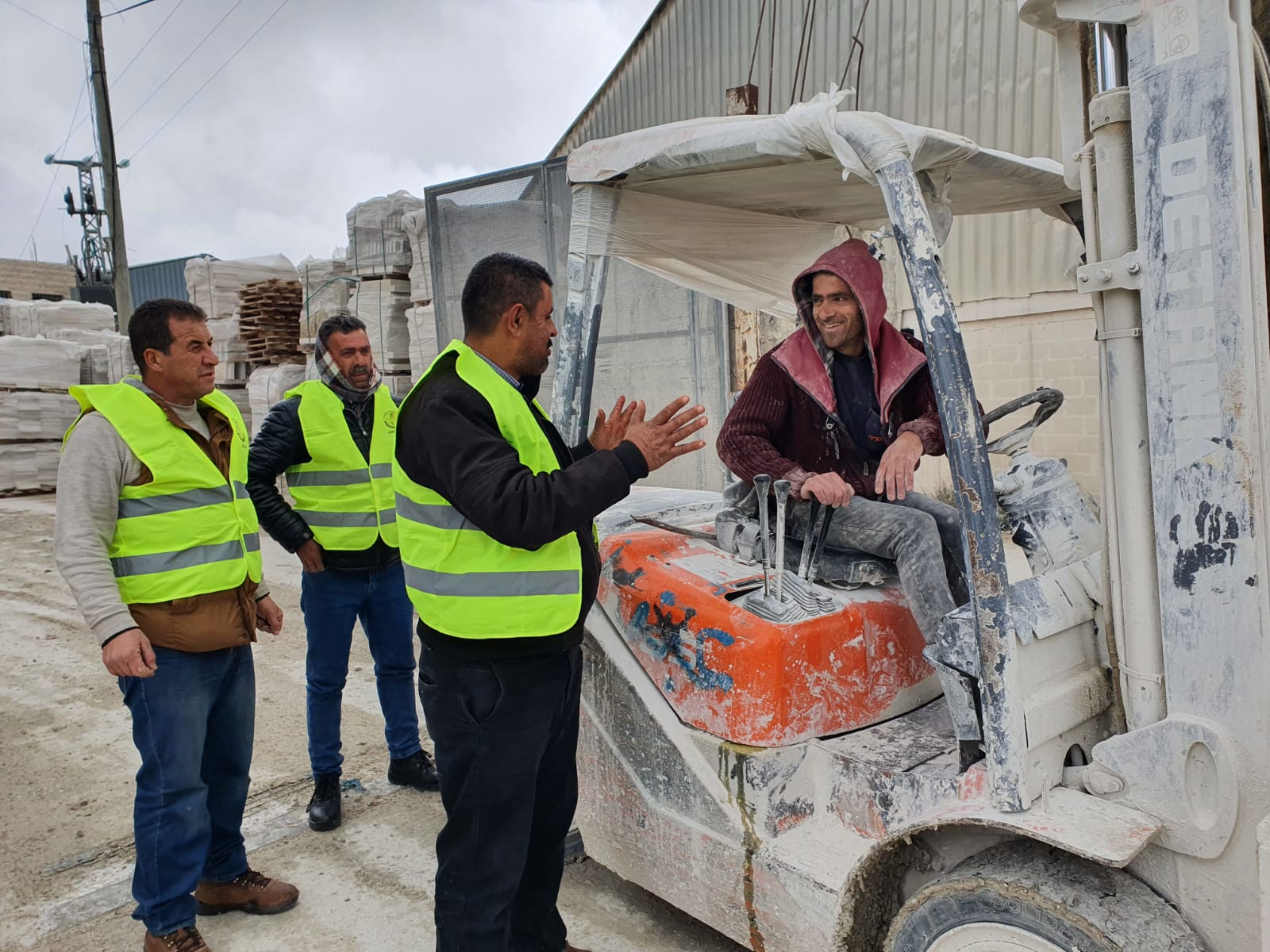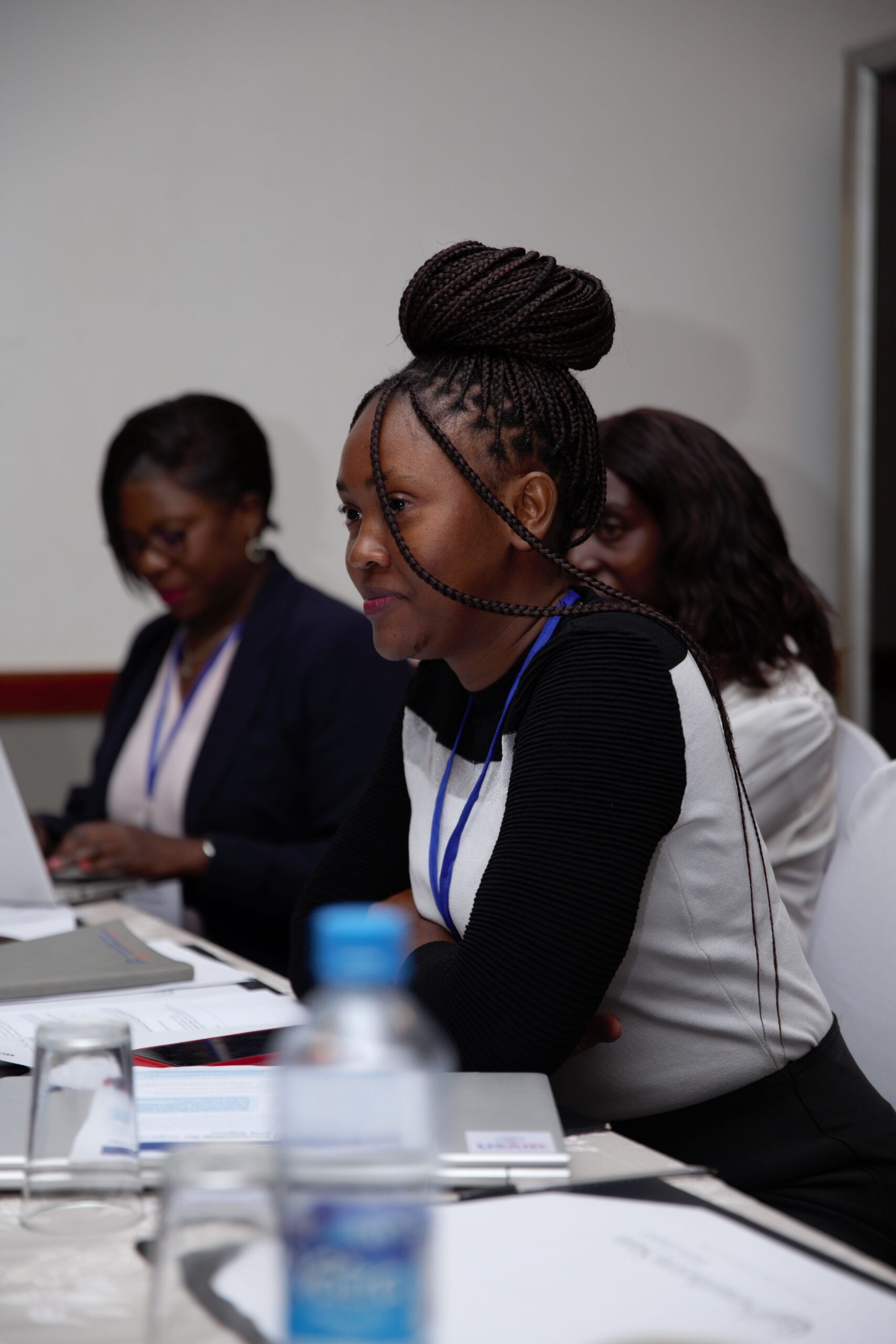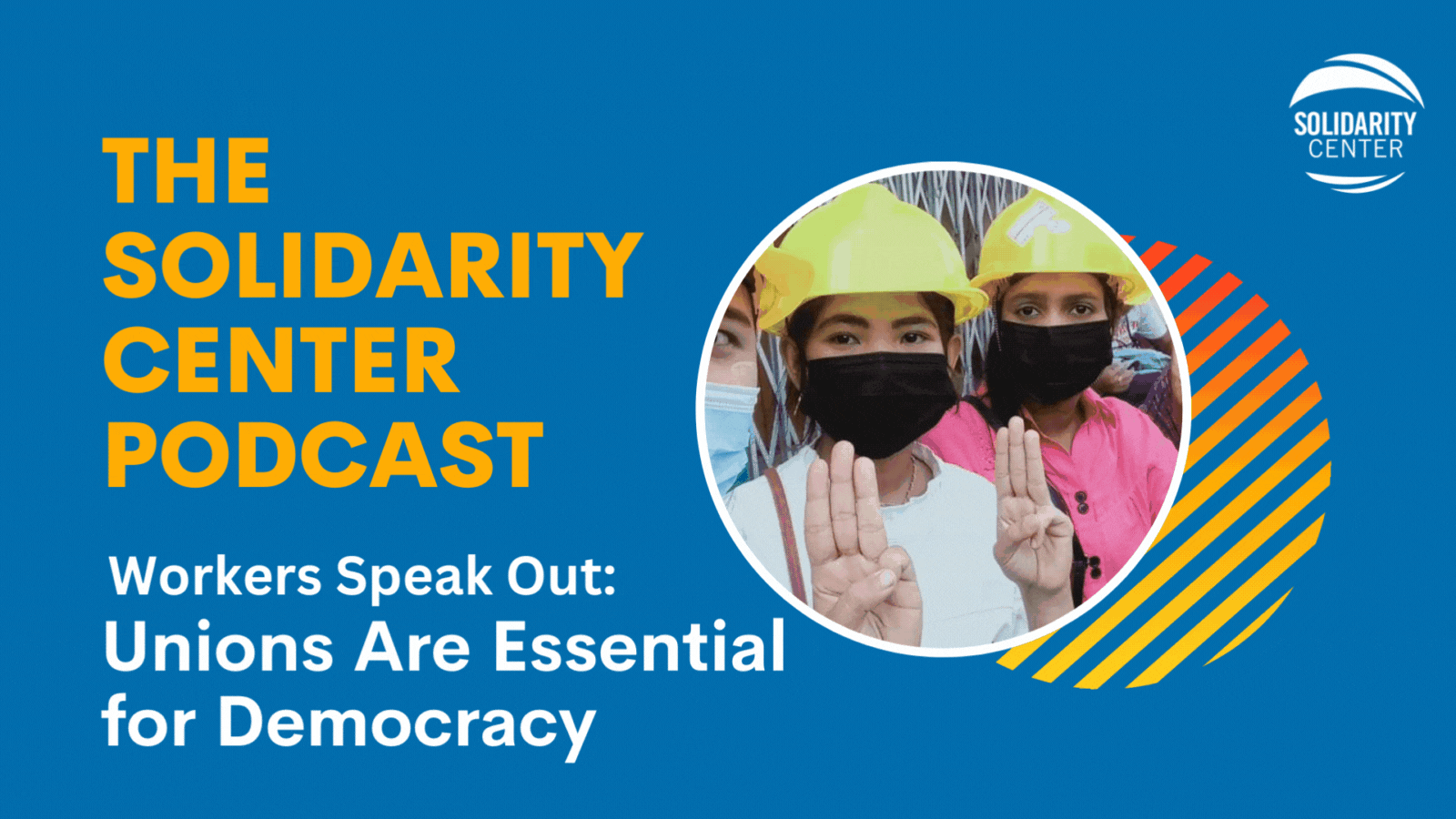After successfully pushing for a higher minimum wage in Palestine, unions now are campaigning to ensure the new law is enforced—and employers pay workers what they are owed. A key part of the process is first determining the prevalence of underpayment. Through...
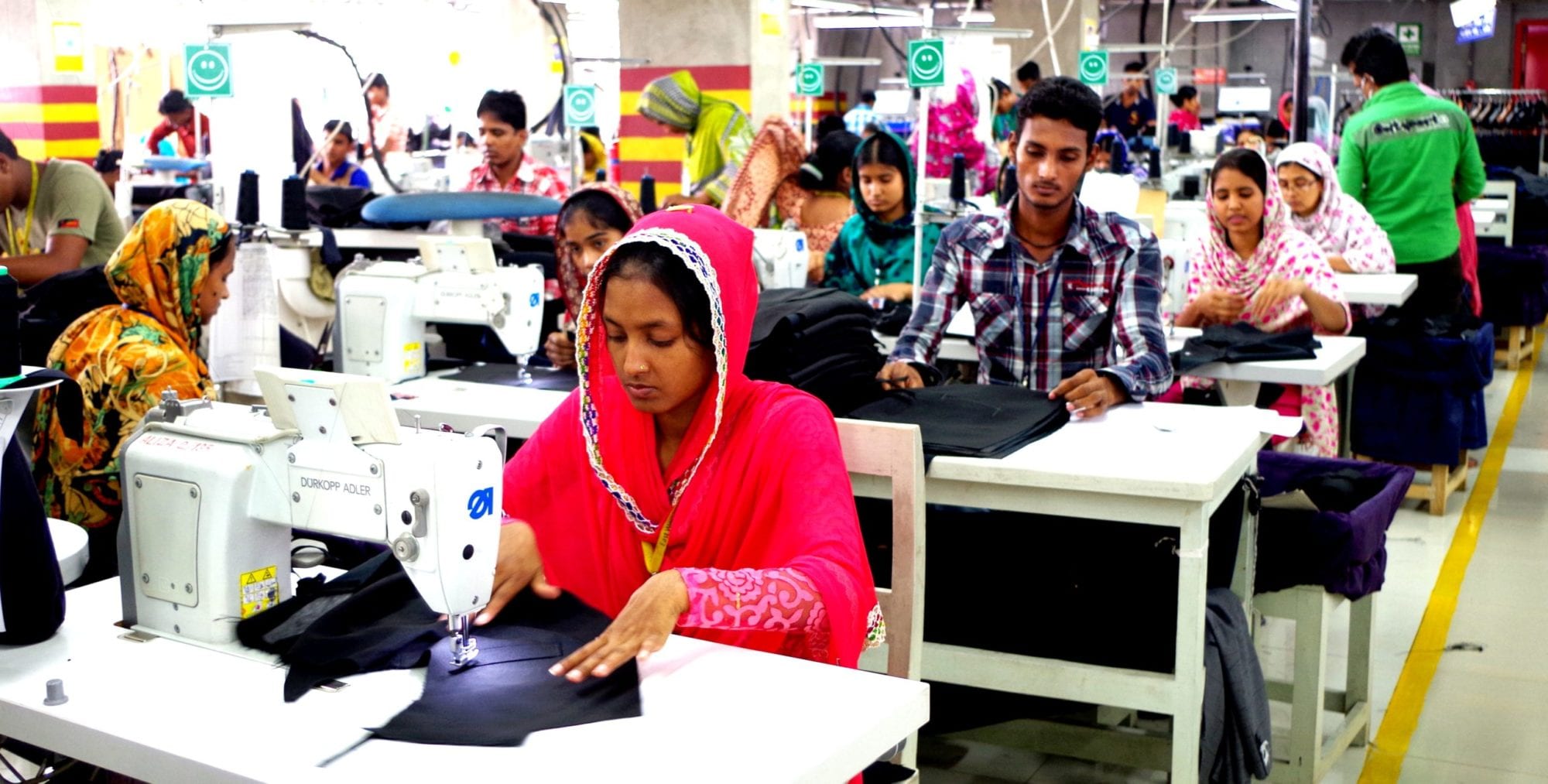
The Solidarity Center works to ensure all workers, such as Bangladesh garment workers, have access to their legal workplace rights. Credit: Solidarity Center/Balmi Chisim
The Solidarity Center works to ensure that all workers have rights protected under international law and have access to effective legal remedies if those rights are violated.
The Solidarity Center works with workers, unions and other organizations around the world to rewrite the rules so workers can form unions and take collective action to promote their rights and be free from exploitation. The Solidarity Center has assisted workers and unions in countries such as Bangladesh, Cambodia, Guatemala, Myanmar, Thailand and Ukraine to analyze legislation and develop strategies to defeat repressive legislation and promote laws and regulations consistent with international law.
Our work supports novel litigation at the national and regional levels to expand rights to workers and unions. For example, the Solidarity Center has supported constitutional litigation to ensure domestic workers in South Africa have access to the national workers compensation fund, and is working with lawyers in Bangladesh to support workers in challenging the use of false criminal charges to dismiss and silence workers. The Solidarity Center also supports efforts in regional human rights courts to promote the rights of informal economy workers in Africa and to hold governments accountable for anti-union violence in the Americas.
The Solidarity Center also is working to build accountability for multinational firms in global supply chains that remain largely beyond the reach of the law in countries where their suppliers are located and in their home countries. The lack of accountability is a major driver of worker exploitation in supply chains, including wage theft, unsafe workplaces, violence against workers and attacks against unions.
Educating workers on their rights and how to use them in the workplace is also a key component of our work. Through the International Lawyers Assisting Workers Network (ILAW), we are building a legal community and increasing the capacity of lawyers and activists to effectively use domestic, regional and international laws and institutions. The ILAW Network brings together more than 400 lawyers in some 55 countries.
African Union Leaders Join Forces in Historic Democracy Summit

/
Podcast: Workers Speak Out: Unions Are Essential for Democracy
Workers from around the world, including those exiled from Belarus, Eswatini and Myanmar for forming unions, striking and trying to speak freely, describe why democracy is important—and why unions are key to democracy—in a special episode of The Solidarity Center...
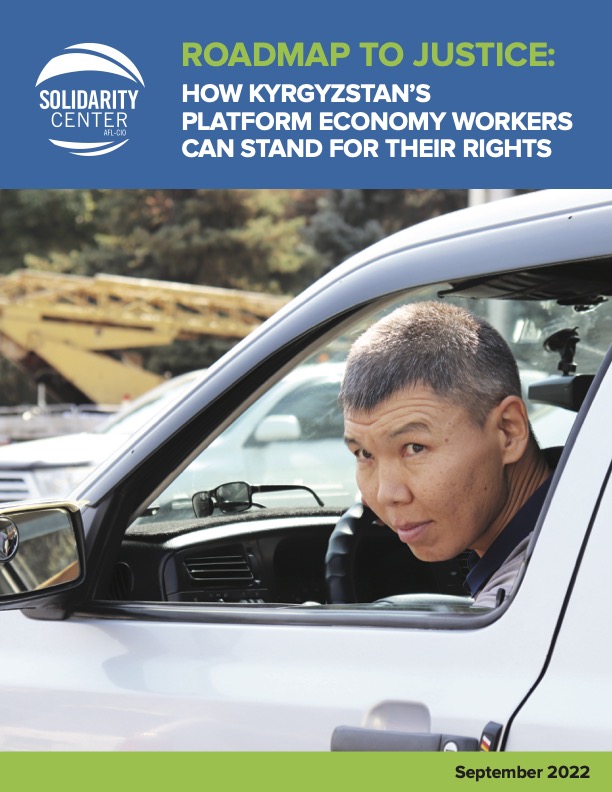
Roadmap To Justice: How Kyrgyzstan’s Platform Economy Workers Can Stand For Their Rights (2022)
The digital platform share in the economy in Kyrgyzstan is growing, and with that growth, an increasing number of people are working through these platforms. Due to its growth, the vulnerability of workers in this sector has also become more apparent, especially for...
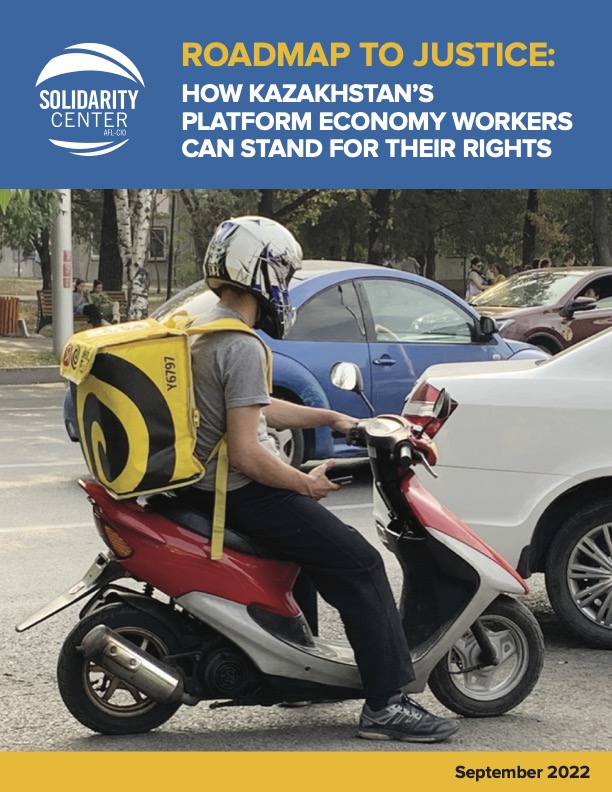
Roadmap To Justice: How Kazakhstan’s Platform Economy Workers Can Stand For Their Rights (2022)
Kazakhstan has the most developed digital market in the region, and digital platform companies operate in Kazakhstan’s major cities. With the sector’s growth, the vulnerability of workers in this segment has also become more apparent, especially for marginalized...
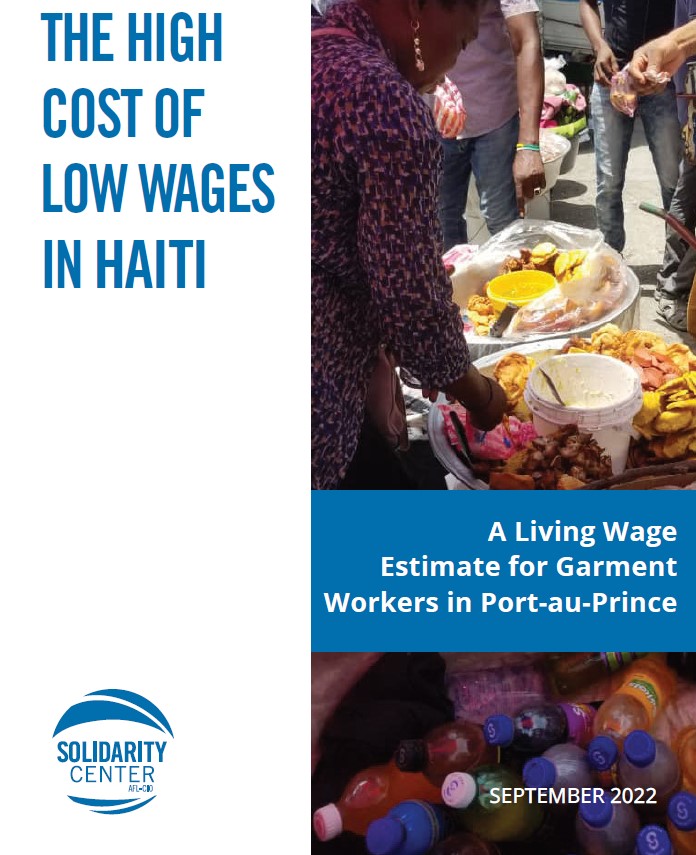
THE HIGH COST OF LOW WAGES IN HAITI (2022)
Haitian garment workers face increasing difficulty in covering basic expenditures as prices soar while wages hover far below the cost of living. Download in English and Haitian Creole.
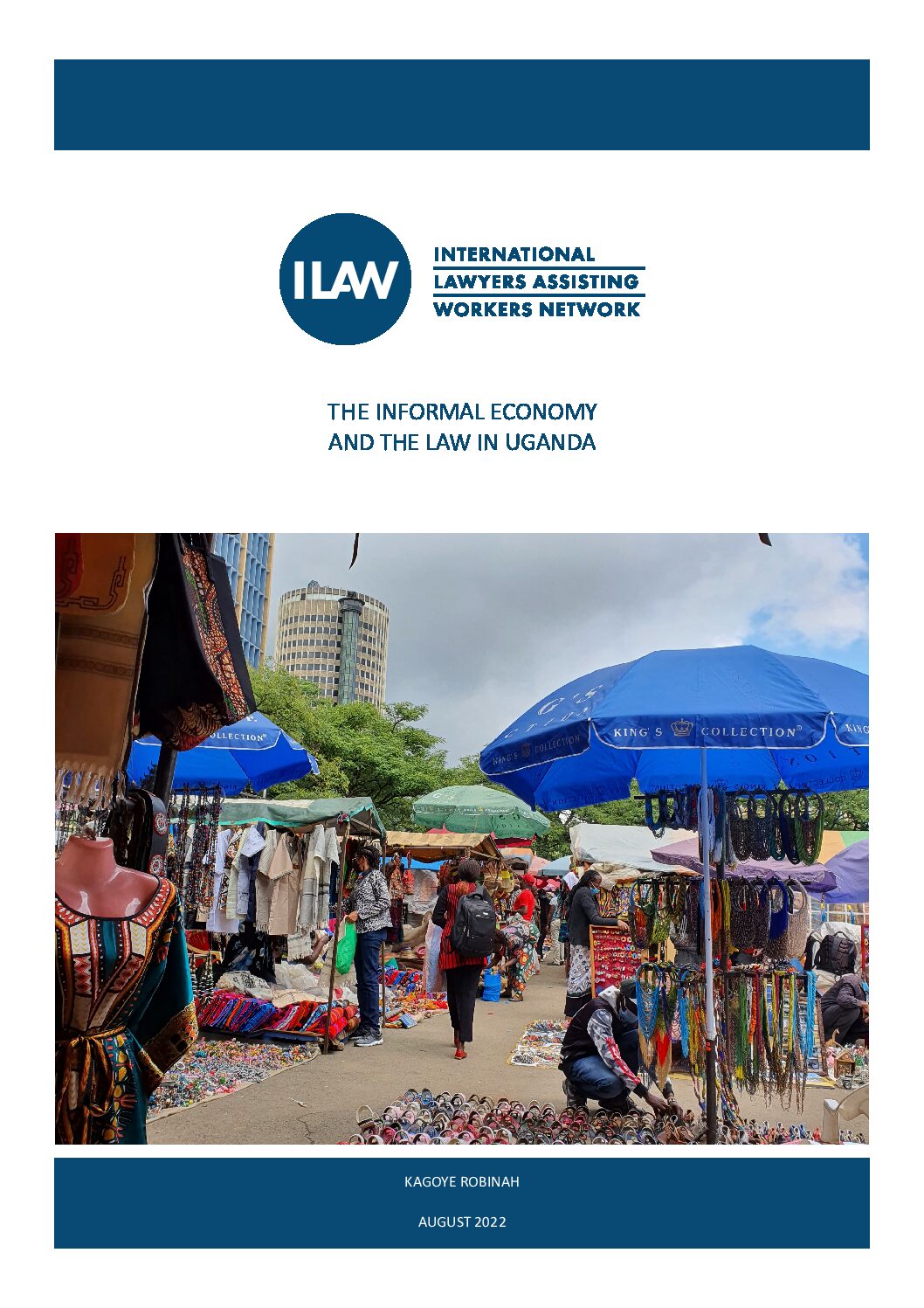
The Informal Economy and the Law in Uganda
The report analyzes how the current legal framework in Uganda fails to fully recognize and protect the rights of workers in the informal economy, even though they constitute 85 percent of Uganda’s labor force and over 50 percent of Uganda’s GDP. The gaps in Ugandan...
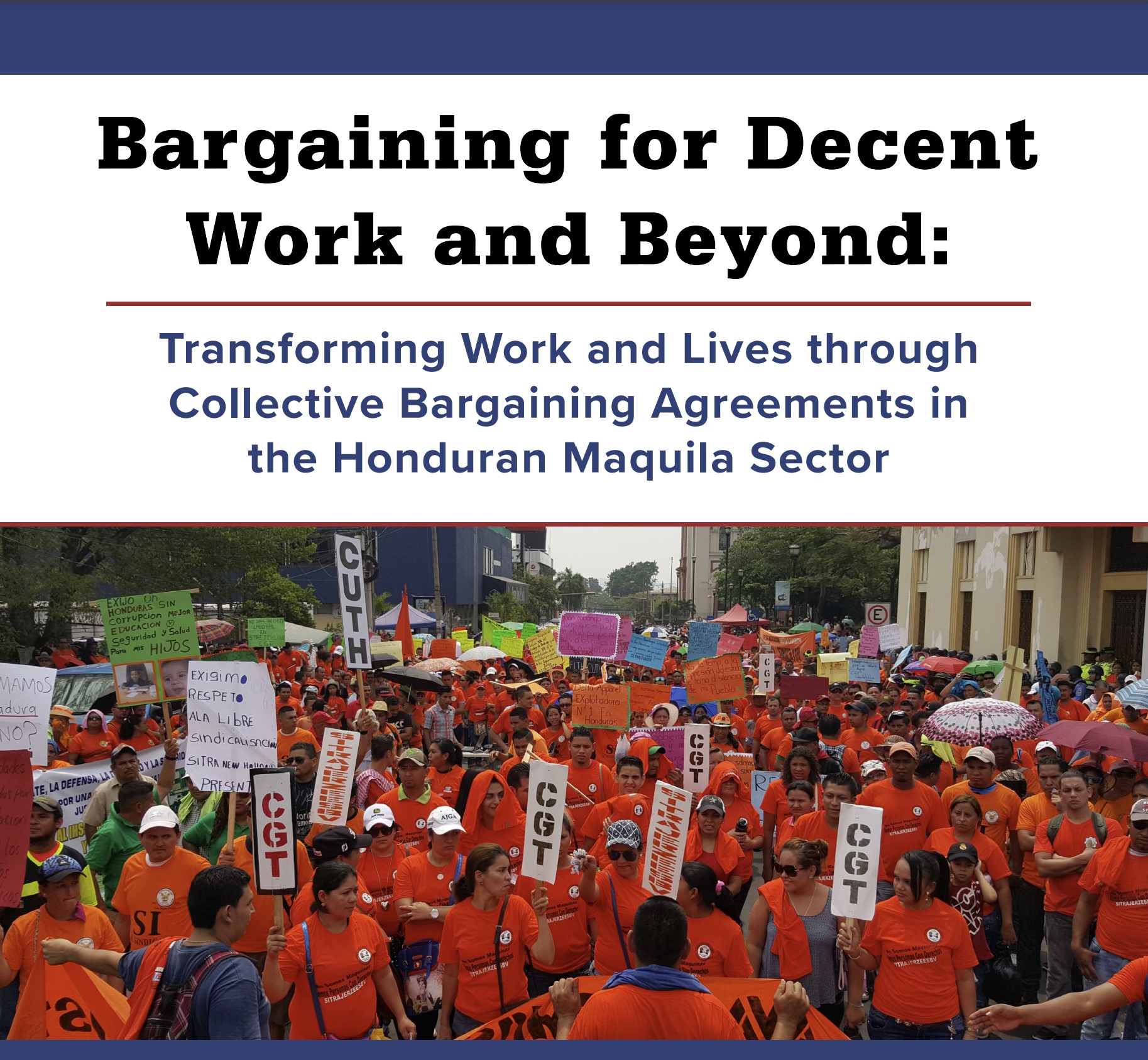
Bargaining for Decent Work and Beyond: Transforming Work and Lives Through Collective Bargaining Agreements in the Honduran Maquila Sector (2022)
Unions in the Honduran maquila sector bargain to improve work conditions and address gender-based violence at work, and so provide options for those who may migrate to seek jobs, a Solidarity Center report finds. Download in English and Spanish.
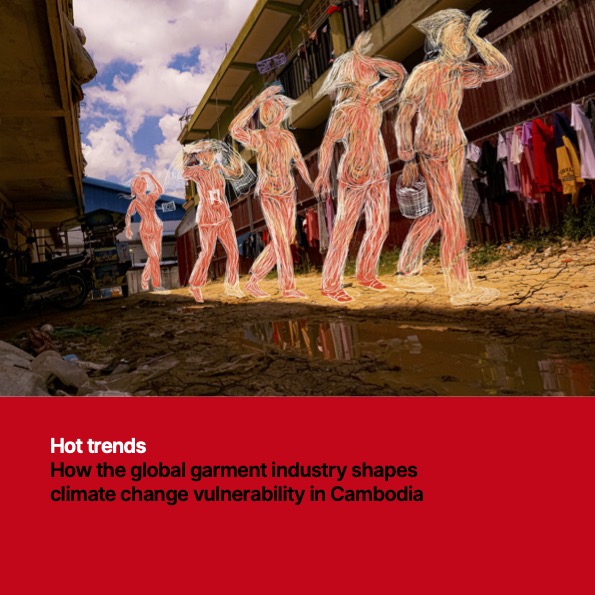
Hot trends: How the global garment industry shapes climate change vulnerability in Cambodia (2022)
In response to mounting public pressure, companies have moved rapidly to launch media campaigns highlighting their commitment to a green future. The global garment industry is no different. Behind much of this “greenwashing” remains the reality that the garment supply...

